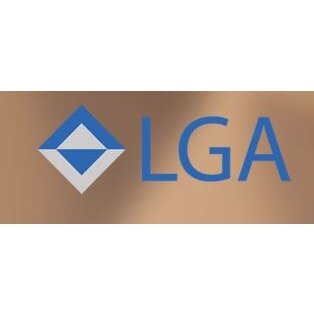Best Tax Increment Financing Lawyers in Funchal
Share your needs with us, get contacted by law firms.
Free. Takes 2 min.
List of the best lawyers in Funchal, Portugal
About Tax Increment Financing Law in Funchal, Portugal
Tax Increment Financing (TIF) in Funchal, Portugal, is a public financing method that is used to subsidize infrastructure and community-improvement projects. This financial tool enables the city to promote economic development by capturing future increases in property taxes generated by the improvements. TIF is designed to stimulate private investment in development areas by funding the initial costs associated with development projects. In Funchal, as in other parts of Portugal, it often involves collaboration between public authorities and private investors to achieve sustainable urban development.
Why You May Need a Lawyer
Individuals and businesses may require legal assistance in Tax Increment Financing for several reasons:
- Understanding TIF Agreements: Legal experts can help interpret the complex contractual provisions and responsibilities within TIF agreements.
- Negotiating Terms: Lawyers can negotiate more favorable terms on behalf of a client, ensuring both compliance and beneficial conditions.
- Compliance Issues: Ensuring that all aspects of TIF comply with local, regional, and national laws can be challenging, necessitating legal guidance.
- Resolving Disputes: Disputes may arise between parties involved in TIF agreements, requiring legal mediation or litigation.
- Tax Implications: Legal professionals can offer advice on the tax repercussions of TIF projects and help structure the financing to maximize tax effectiveness under Portuguese law.
Local Laws Overview
Key aspects of local laws affecting Tax Increment Financing in Funchal include:
- Urban Development Regulations: These laws regulate the scope and nature of development that can be undertaken under TIF agreements.
- Financial Management Laws: These define how public funds can be managed and allocated towards TIF projects, ensuring transparency and accountability.
- Zoning Laws: Zoning regulations play an essential role in determining where and how development projects can proceed.
- Environmental Regulations: Compliance with environmental protection standards is critical in the implementation of TIF projects.
Frequently Asked Questions
What is Tax Increment Financing?
Tax Increment Financing is a financial mechanism that captures future increases in property taxes generated by a development to fund the development itself.
How does TIF benefit Funchal?
TIF helps revitalize neglected areas, stimulates economic growth, improves public infrastructure, and attracts private investments, ultimately leading to increased tax revenues.
Who typically uses TIF?
Developers, municipalities, and public-private partnerships generally utilize TIF to finance new development projects or improvements in designated areas.
Is TIF available throughout Portugal?
While TIF is a recognized financial tool, its availability and application can vary depending on regional policy decisions and municipal regulations.
How long does a TIF district last?
The duration of a TIF district is typically established at the outset of the project and can range from several years to a few decades, depending on the scale of the project and legal agreements in place.
Can residential projects be financed by TIF?
Yes, although traditionally focused on commercial projects, TIF can be used for residential development, especially if it aligns with urban renewal objectives.
What are the risks associated with TIF?
Risks include project delays, insufficient tax increment generation, and potential overdependence on future tax revenue projections.
What determines the success of a TIF project?
Successful TIF projects are typically characterized by comprehensive planning, strong public-private partnerships, well-defined goals, and adequate financial and legal oversight.
Do TIF projects require public approval?
Public approval processes may vary but often include community engagement, hearings, and approvals from local governmental bodies to ensure transparency and stakeholder involvement.
Can a TIF district be revised or terminated?
Yes, revisions or terminations can occur, typically requiring legal processes and compliance with established contractual terms and municipal regulations.
Additional Resources
For more information and assistance, you can contact the following resources:
- Funchal City Hall: A primary source for information on local TIF projects and regulations.
- Portuguese Chamber of Commerce: Offers resources and guidance on business and economic development initiatives.
- Legal Advisory Firms: Specialized firms in Funchal can offer dedicated expertise in TIF-related legal advice.
- Urban Development Agencies: Provides insights and data on ongoing and planned urban projects in the region.
Next Steps
If you require legal assistance with Tax Increment Financing in Funchal, consider the following steps:
- Consult a Lawyer: Seek professional advice from a lawyer specializing in public finance or real estate development.
- Gather Information: Prepare all relevant documentation concerning your project or interests in TIF before your legal consultation.
- Review Local Laws: Familiarize yourself with applicable local and national legislation related to TIF.
- Engage Community Stakeholders: Involve relevant community and business groups to build support and gather diverse perspectives on proposed projects.
- Contact Appropriate Authorities: Reach out to municipal authorities for guidance on the procedural requirements and opportunities for public-private partnerships in TIF projects.
Lawzana helps you find the best lawyers and law firms in Funchal through a curated and pre-screened list of qualified legal professionals. Our platform offers rankings and detailed profiles of attorneys and law firms, allowing you to compare based on practice areas, including Tax Increment Financing, experience, and client feedback.
Each profile includes a description of the firm's areas of practice, client reviews, team members and partners, year of establishment, spoken languages, office locations, contact information, social media presence, and any published articles or resources. Most firms on our platform speak English and are experienced in both local and international legal matters.
Get a quote from top-rated law firms in Funchal, Portugal — quickly, securely, and without unnecessary hassle.
Disclaimer:
The information provided on this page is for general informational purposes only and does not constitute legal advice. While we strive to ensure the accuracy and relevance of the content, legal information may change over time, and interpretations of the law can vary. You should always consult with a qualified legal professional for advice specific to your situation.
We disclaim all liability for actions taken or not taken based on the content of this page. If you believe any information is incorrect or outdated, please contact us, and we will review and update it where appropriate.











